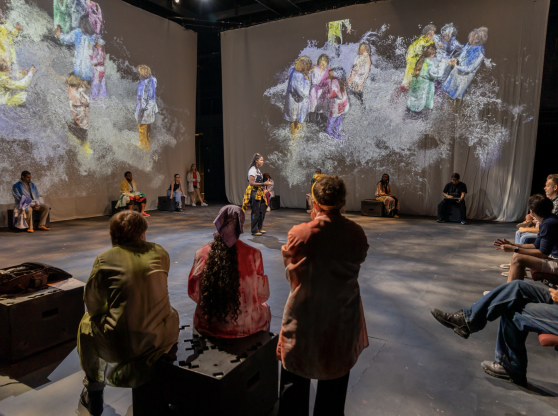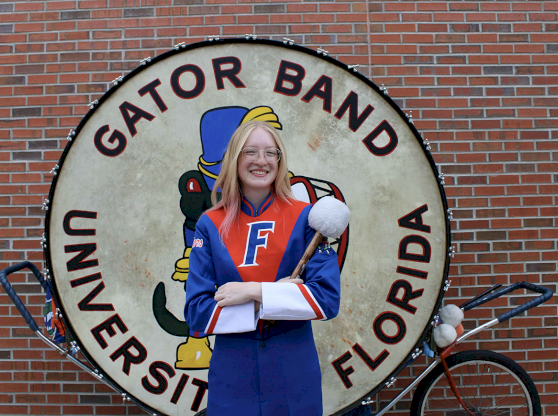As the music climbs toward crescendo, Michael Clark’s artistry dances above, across and around the stage.
At an opera performance, Clark takes the audience on a journey, using scenic projections to transport them virtually outside of the theatre. He enhances music, dancing and dramatic shows with tools that go beyond traditional painted backdrops, merging the physical environment of the space with complex digital designs.
“That’s my specialty— combining those two worlds,” he said.
Now, students in UF’s College of the Arts are learning how to complement live performances with scenic and projection design through Clark’s course at the Digital Worlds Institute entitled “Entertainment Technology”. He said the students in his class, who come from a variety of academic backgrounds, are acquiring useful skills in creating compelling live productions in a digital age.
“Having that visual reference is something we don’t just desire, but we almost demand it in our entertainment,” he said.
Before coming to Digital Worlds Institute as a visiting instructor, Clark worked as a scenic and projection designer in New York on a number of Broadway and off-Broadway shows. He earned his Bachelor’s of Fine Arts from the University of North Carolina in 1993.
At Digital Worlds, Clark and his students meet in and utilize the institute’s Polymodal Immersive Classroom Theater (PICT). The panoramic, ultra-wide projection and surround sound system in the theatre space make it a unique storytelling platform, he said.
Entertainment Technology is made up of students from both UF COTA’s Digital Arts and Sciences program and its School of Theatre and Dance. Clark said he’s excited to see these groups collaborate.
“We have this great inertia of artists and engineers working together,” he said.
Technical thinkers will be compelled to be creative, and creative students will learn a technical enterprise, he explained.
“That’s truly what excites me about the class,” Clark said.
This collaborative ideology will be integrated into the course throughout the rest of the semester. Clark said he will put students into teams so that they can learn from one another.
“Having a team together is a more powerful function than having to work on something on your own,” he said.
The culmination of the collaborative class work this semester will be an original multi-media production that will receive its World Premiere as part of the Institute’s Digital Convergence Series in April.
As for Clark’s transition from New York to Gainesville, he said he’s enjoying being outside in Florida during the winter months. He said Gainesville is the quintessential college town, full of smart and creative people who embrace the arts and culture.
“I find it a beautiful little jewel,” he said.



